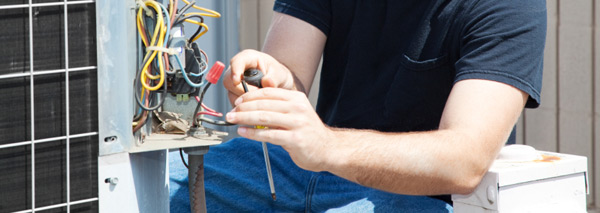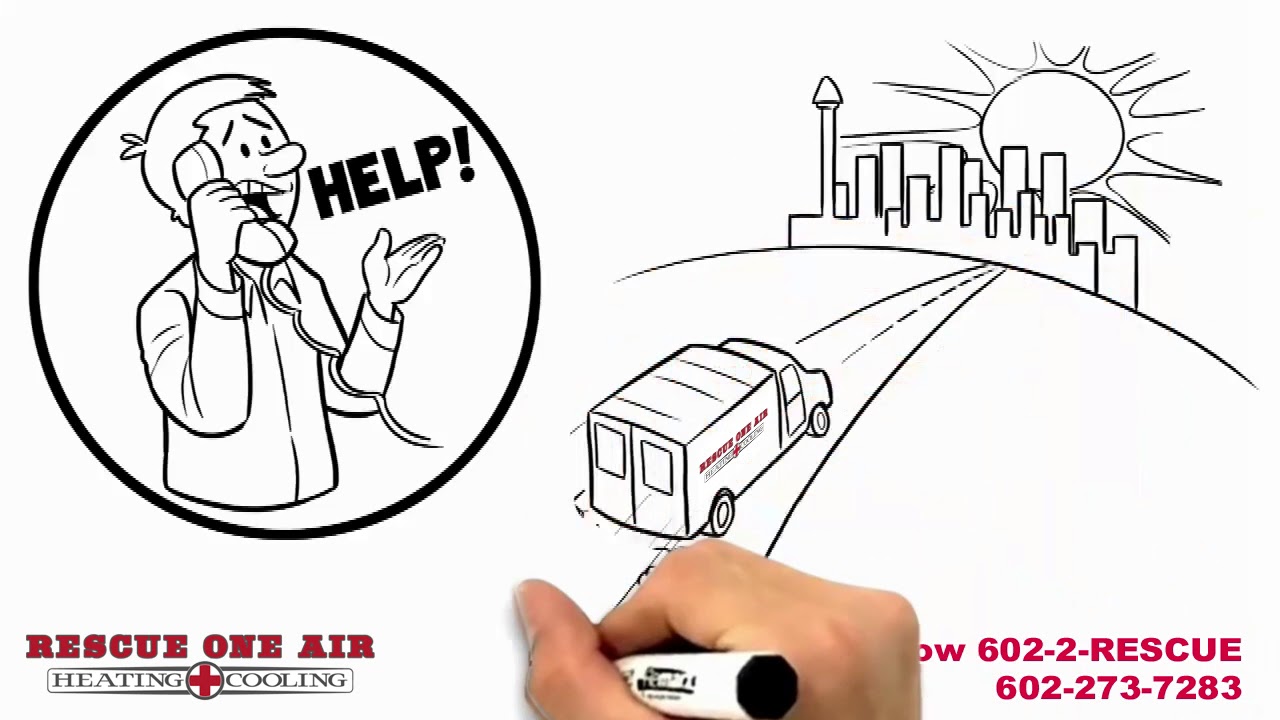With temperatures often soaring past 100 degrees F, Phoenix families know firsthand how dangerous it can be to experience a sudden AC failure. When something goes wrong with your cooling equipment, you need a team that’s ready to deliver the fast, effective repairs you deserve to regain total comfort quickly.
Rescue One Air is proud to offer same-day AC repairs that Arizonans can count on to keep their homes cool and comfortable. Our NATE-certified technicians are dedicated to delivering honest, fair, and friendly solutions that ensure lasting comfort no matter how high the temperatures climb.
Schedule same-day air conditioning repairs in the Valley by contacting our team today!
Signs Your Cooling System Needs Repairs

Understanding when it’s time to schedule AC repairs is the first step toward regaining total comfort in your home. Don’t hesitate to contact our team for same-day AC repair the moment you experience:
- Insufficient cooling: If your air conditioner is running but not effectively cooling, it could be due to low refrigerant, a faulty compressor, or a clogged filter.
- Unusual noises: Banging, clanking, or screeching noises could indicate loose or damaged components, including a worn-out belt or a failing motor that needs repair.
- Frequent cycling: If your system is turning on and off more frequently than usual, it could be due to an electrical issue, malfunctioning thermostat, or improper airflow.
- High bills: Sudden spikes in your cooling costs could point to an inefficient air conditioner, possibly due to wear and tear or an underlying mechanical problem.
Our Air Conditioner Repair Services

Cooling system failures aren’t just an inconvenience; they can be dangerous in Arizona’s extreme heat. Our team understands the urgency behind your AC repair requests, which is why we offer same-day repair services to families throughout the greater Phoenix area. With years of local experience under our belt, we have the skills and tools necessary to service any cooling equipment, including central air conditioners, ductless mini-splits, and heat pumps.
Avoid Repairs With a Preventative Maintenance Plan
Annual maintenance is the best way to protect against expensive and unexpected AC repairs. With our preventative maintenance plan, we make keeping up with routine cooling tune-ups easy and affordable. Through this maintenance program, you’ll receive an annual comprehensive system inspection along with exclusive perks like priority service scheduling, waived trip charges, and discounts on new systems and repairs.
Schedule Air Conditioner Repairs Today
When you need fast, effective air conditioning repairs in Phoenix, AZ, look no further than Rescue One Air to get the job done right. Offering same-day air conditioning repairs backed by a team of background-checked, licensed, and certified technicians, you can count on us to keep your cooling system running efficiently on the hottest days of the year.
Is your air conditioner acting up? Request same-day air conditioning repairs in Phoenix or the surrounding areas.
Air Conditioning Repair FAQs
Why is my air conditioner blowing warm air?
Your AC may be blowing warm air due to low refrigerant levels, a malfunctioning compressor, or a clogged air filter that restricts airflow.
When is it better to replace an AC system rather than repair it?
It’s better to replace an AC system if it’s over 10 to 15 years old, has frequent breakdowns, or if the cost of repairs exceeds half the price of a new unit.
Can I do any AC repairs on my own?
While you can handle simple tasks like cleaning or replacing the air filter, complex repairs, such as fixing refrigerant leaks or electrical issues, are best left to the professionals.

